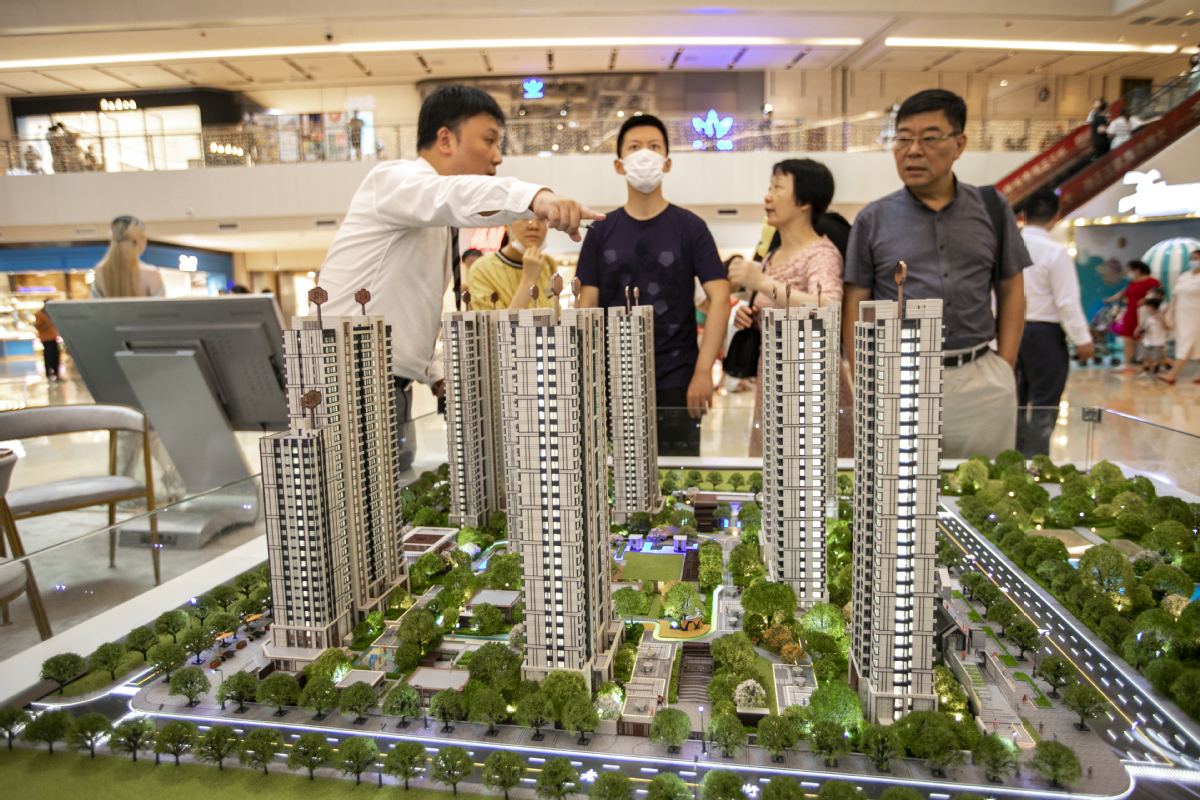Real estate forum takes closer look at Five-Year Plan
chinadaily.com.cn | Updated: 2021-10-22 17:04

The 14th Five-Year Plan is expected to improve innovation quality, focus more on environmental sustainability and further support "new urbanization", especially the development of city clusters, experts said at a forum held by international real estate agency Cushman & Wakefield on Thursday.
According to Zhao Jinquan, CEO of Cushman & Wakefield Greater China, the plan is expected to improve social and economic imbalances between urban and rural areas.
The research report "China's 14th Five-Year-Plan: What's next for real estate?" discusses the influence of the 14th Five-Year Plan on real estate from three perspectives, including innovation, technology and new infrastructure, environmental sustainability and city cluster development.
As one of the key driving forces in China's development, technology has been widely valued in the 14th Five-Year Plan. Many innovative applications thanks to technology advances will affect the future real estate industry. For example, the commercialization of 5G in China will boost the scale of information consumption from over 8 trillion yuan ($1.25 trillion) in 2020 to 10.6 trillion yuan ($1.65 trillion) in 2025, based on an estimate from the China Academy of Information and Communications Technology.
The scale of China's data center industry by 2025 is expected to reach 595.2 billion yuan ($93 billion), three times the existing total, according to a forecast from Beijing Duoke Information Technology Limited. Cushman & Wakefield predicted the constant development of real estate trust funds and green financing will draw more investment to the data center industry. On the other hand, progress in intelligent commercial building platforms enables owners and operators to effectively achieve their goals but also reduce the cost of water and energy consumption, mitigate negative impacts on environmental sustainability and better attract and retain users.
The 14th Five-Year Plan emphasizes stricter measures on air pollution will be adopted in the future in order to achieve the aim of carbon neutrality by 2060. China's real estate industry plays a crucial role in this process. Energy consumption and carbon emissions of buildings can be effectively lowered by green finance, energy-saving materials, smart equipment and other technologies. As environmentally friendly properties usually enjoy higher rents and capital value, as well as more resilience when facing market downturns, they are still the first choice for many tenants.
Different requirements were put forward for city clusters, central cities and others in the 14th Five-Year Plan, which is the first time "metropolitan areas" are expounded on in independent chapters for the medium and long-term planning of national development. By gathering a large number of resources, such as talent, transportation and education, city clusters driven by central cities will forge a closely linked economic network. It is anticipated they will promote the layout of industries, strengthen effective resource allocation, and thus accelerate the growing pace of regional economies.
Wang Hao contributed to this story























